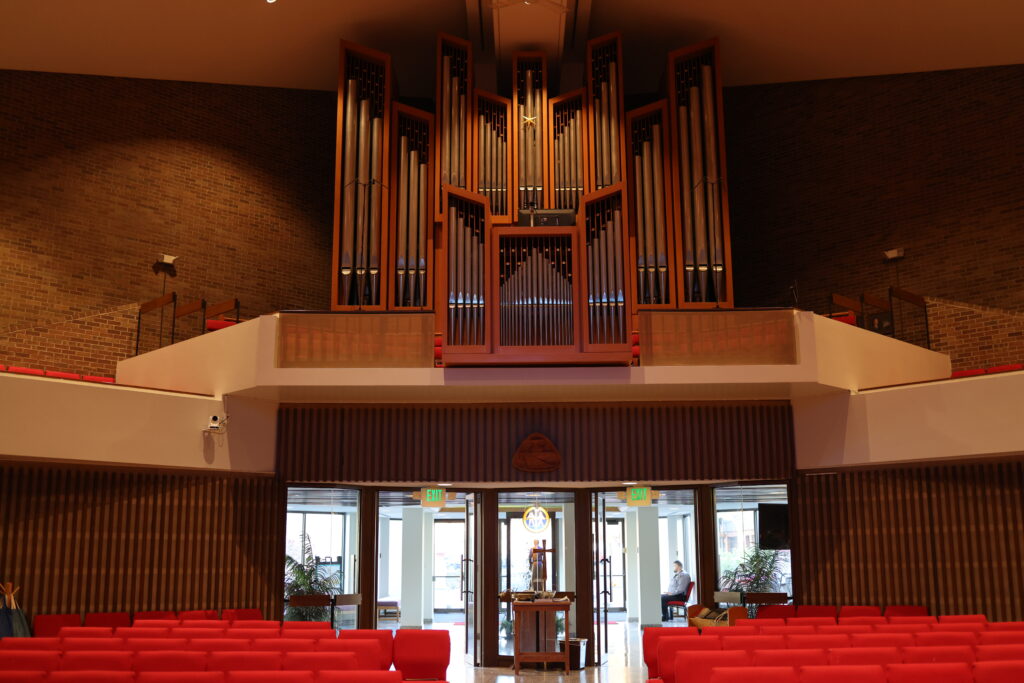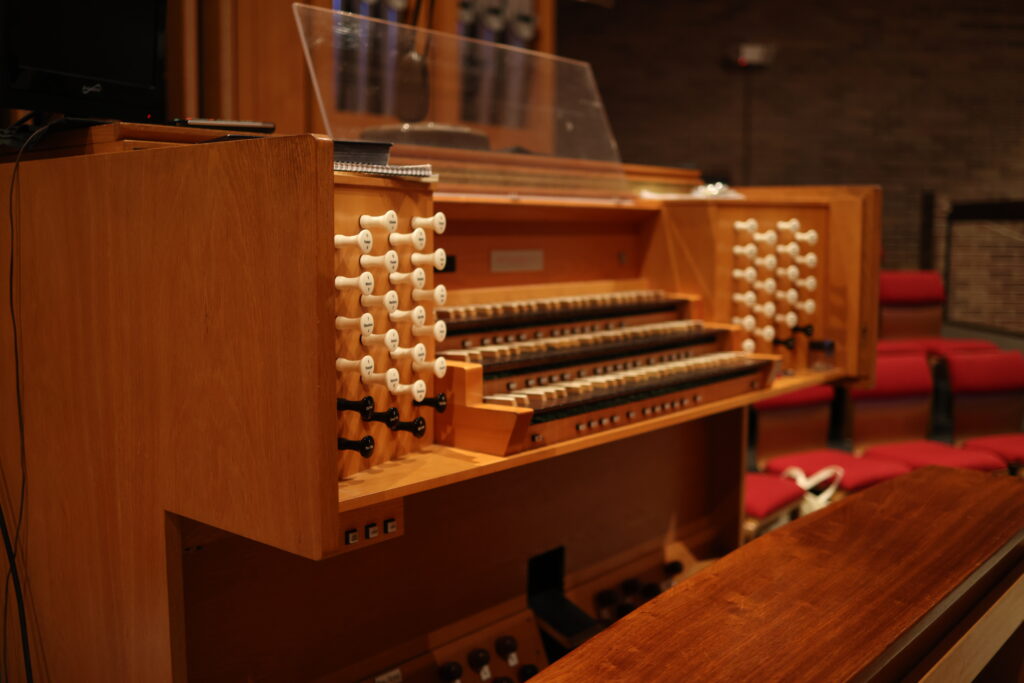First Wayne Street’s pipe organ
The Beckerath Pipe Organ
First Wayne Street’s pipe organ
At First Wayne Street, music is central to worship and community life. A key part of that legacy is the mechanical action pipe organ, designed by Rudolph von Beckerath of Hamburg, Germany, and installed in the sanctuary’s rear gallery in 1974. With three manuals, pedals, 37 stops (51 ranks), and 2,520 pipes, this instrument delivers a powerful and nuanced musical experience.
A closer look at the organ’s design
The organ is divided into four sections, or divisions, each contributing unique sounds to the instrument’s overall richness:
the Great, Swell, Pedal, and Ruckpositiv.

Great Division
The Great is the heart of the organ, leading hymn singing with 14 ranks of pipes. It forms the foundation of the organ’s sound, providing a strong, clear voice.
Swell Division
Located beneath the Great, the Swell’s 12 ranks are enclosed behind shutters that can open and close, allowing the organist to control the volume and expression of the music.
Pedal Division
Positioned on either side of the organ’s main case, the Pedal division provides the lowest notes, anchoring the sound. It contains 13 ranks, some of which can also be used for solo passages.
Ruckpositiv Division
Mounted in the gallery railing closer to the congregation, the Ruckpositiv offers gentle solo stops and vibrant choruses that engage listeners directly, adding brilliance to the overall sound.

Mechanical craftsmanship and artistry
What makes this organ especially rare is its mechanical key action, a design more commonly associated with Baroque-era instruments like those played by Johann Sebastian Bach. Unlike modern electronic systems, this design uses a series of levers and pulleys, giving the organist precise control over the articulation and tone of each note. This combination of mechanical precision and artistry allows the music to “speak” with clarity and depth, enhancing the sanctuary’s already remarkable acoustics.
The result? A thrilling and immersive musical experience that leaves a lasting impression, whether accompanying worship or during special concerts.
Organ specifications
– Quintadena 16′
– Principal 8′
– Rohrflöte 8′
– Oktav 4′
– Spitzflöte 4′
– Nasard 2⅔′
– Doublette 2′
– Tierce 1⅗′
– Mixtur V
– Trompete 8′
– Holzgedackt 8′
– Gemshorn 8′
– Celeste 8′
– Viola 4′
– Koppelflöte 4′
– Waldflöte 2′
– Sifflöte 1′
– Zimbel III
– English Horn 16′
– Oboe 8′
– Tremulant
– Gedackt 8′
– Principal 4′
– Rohrflöte 4′
– Octave 2′
– Quinte 1⅓′
– Sesquialtera II
– Scharf IV
– Cromorne 8′
– Tremulant
– Unterbass 16′
– Principal 8′
– Gedackt 8′
– Choralbass 4′
– Nachthorn 2′
– Mixtur V
– Posaune 16′
– Trumpet 8′
– Schalmei 4′
Additional features
A set of bells that adds a sparkling effect to the music.
Combination action:
– 6 Generals
– 5 each for Great, Swell, Positiv, and Pedal
– Cancel and Tutti options
– Swell to Great
– Positiv to Great
– Swell to Pedal
– Great to Pedal
– Positiv to Pedal

